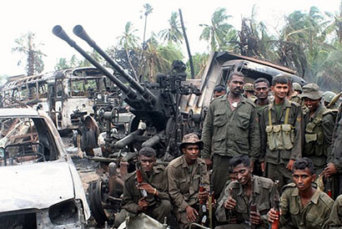- About
- Topics
- Story
- In-Depth
- Picks
- Opinion
- News
- Donate
- Signup for our newsletterOur Editors' Best Picks.Send
Read, Debate: Engage.
| located: | Sri Lanka |
|---|---|
| editor: | Shadi Khan Saif |
Within weeks of the outrageous shooting at mosques in Christchurch, the massacre of over 200 Sri Lankans mainly Christian worshipers signifies the urgent need to control religious fanaticism of all sorts – which should be done in a very sensible and candid way rather than with a kneejerk approach.
First and foremost, the Muslim world is now obliged to reclaim its religion from the fanatic forces by publicly and profoundly condemning the disgraceful and outrageous act of terrorism reportedly conducted in the name of Islam.
Just like the Christians in the New Zealand, who embraced the brokenhearted Muslim following the Christchurch shooting, the victims of the Sri Lanka bombing need healing and support.
With delicate and smart handling, the Kiwis managed to control the backlash and spread of hatred among Muslims globally. But any mismanagement in connection with the Sri Lanka bombing can earn the terrorists the real prize they seek, which is the spread of hatred and fear on the religious lines.
The rise of fanaticism is equally – if not more – a pressing concern of our time, alongside climate change, growing disparity, and lingering disputes between different states causing an immense loss of lives.
Even the word frightening is an understatement in defining what these two relatively tiny island nations – long perceived as much safer – went through.
Ironically, the global debate on these issues is not robust enough to create a narrative of peaceful coexistence, and compassion across the board in the wake of these awful acts of terror.
It is too late to believe that such voices and debates are shocked into silence. Instead, it seems the silence is due to indifference as global agenda-setting forces seem largely occupied with easily sellable rhetoric designed for the world prior to this explosive, and hardline versions of religion and racism.
The sights we saw in New Zealand and Sri Lanka are something we never want to see again. And, for that, there is a need to come out of the comfort zone and take the real issue head on, instead of treating the symptoms.
There is a pressing global need to embrace each other and overcome the growing disparities caused by divisions and inequalities.
